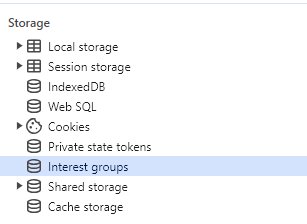How Google Phase-Out of Third-Party Cookies affects Website Owners and Digital Marketing
Google has been talking about phasing out third-party cookies for years – but now, it’s finally happening. To be 100% accurate, it’s already happened for 1% of Google Chrome users and it will reach 100% of users by the end of 2024.
What is a cookie and what’s the difference between third-party cookies and first-party ones?
Almost all of us know the term ‘cookie,’ and this vital little text file is created and used by websites you visit to store data (such as the visitors' preference, keeping you logged in etc) on your device’s browser.
- A first-party cookie is created by the website you’re visiting and associated with the website’s domain. Only this domain can read the data stored on this cookie.
- Third-party cookies are created by other websites and associated with those domains, often for advertising purposes. If you visit several websites that load a particular advertiser cookie, this advertiser will have a record of those visits and can therefore build a profile of your interests. This profile is then used to show you ads or content relevant to your interests.
Why are third-party cookies being phased out?
Third-party cookies enable user tracking and profiling across different websites which is seen as a privacy concern by many because of potential misuse and lack of transparency.
And we now live in a much more privacy-aware world so:
- Consumers are increasingly aware their online activity is tracked, and their data is used for the benefit of companies. They’re demanding more control and clarity over how their data is handled.
- Regulators are also putting pressure on companies as to how data is collected, stored, used, and consented by the users. Legislation such as GDPR, CCPA and the new EU Digital Markets Acts (DMA which will be effective from March 2024) are forcing companies to comply or face large fines.
Rejecting third-party cookies is not new, Safari blocks them by default since 2020, and Firefox since 2019. However, Google’s announcement is significant as Chrome has a 65% browser market share worldwide and Google is also the largest digital advertiser.
“The ultimate goal of phasing out Third-Party cookies
is to protect user privacy by preventing tracking across websites.”
What does this mean if you’re a website owner?
For website owners who use digital advertising, this will mean the loss of granular targeting capabilities. With third-party data gone, advertisers will find it difficult to pinpoint their ideal audience based on data collected from previous interactions.
This could potentially lead to decreased ad revenue and this will also affect measurement, as tracking conversions and campaign performance across different platforms won’t be as effective.
How can effective digital advertising work without third-party cookies?
As you can imagine, AdTech companies need to evolve and adapt to this radical change and a few solutions are being worked on at the moment.
Partitioned third-party cookies (aka CHIPS).
These are still third-party cookies, but a “Partition” attribute is added to them. This means the cookie written onto the user’s browser is still associated with the advertiser’s domain, but the partition added to the cookie is associated with the website that places the cookie.
In the example below, a user visits websiteA.com and websiteB.com. The advertiser cookie is still dropped by the website, however, the advertiser loses the cross-domain functionality and can only read the cookie values in the context of the site where the cookie was set.
Without the partition, the advertiser would have been able to access the cookie set on websiteA.com from websiteB.com.
websiteA.com
| Cookie name | Cookie Value | Cookie Domain | Cookie Partition |
| ID | 12345 | websiteA.com | |
| advertiser_ID | ABCDE | advertiser.com | websiteA.com |
websiteB.com
| Cookie name | Cookie Value | Cookie Domain | Cookie Partition |
| ID | 98765 | websiteB.com | |
| advertiser_ID | VWXYZ | Advertiser.com | websiteB.com |
The benefits of Partitioned cookies are that businesses can still target ads based on users’ interactions within their specific website, and it limits cross-domain tracking making this method more privacy-centric. Note that it’s up to the vendor to implement this solution.
Currently, only Chrome and Edge support third-party cookies that use the partition method.
Google Privacy Sandbox & interest groups.
Google introduced the ‘Privacy Sandbox’ and the idea is that user profiles will be generated within the Chrome browser itself and the data collected will be based on user browser interactions, website visits etc. Based on this data, Chrome will classify the users into different interest groups. Currently, there are around 400 interest groups, for example, an Arts subset could look like this: Arts & Entertainment/Events & Listings/Concerts & Music Festivals).
Third-party advertisers will be allowed to consult the user’s interest groups stored in Chrome using an API (Topic API) and in effect, use contextual advertising to display relevant ads to users.
Interest groups are already rolled up in Chrome and you can check them by using the Dev Tools. Interest groups will only be populated if you’re part of the 1% of users who have third-party cookies disabled by Google.
You can check the data that Chrome has collected about you by entering this link in Chrome (Although it’s likely to be empty at the time of this publication.)
chrome://topics-internals/
From a conversion tracking point of view, what does all this mean?
Measuring conversions on a website based on a display ad won’t change. Metrics will still be available from analytics platforms such a GA4, Piwik Pro et al, as long as the correct conversion tracking scripts are in place on your website (such as pixels and conversion events.)
What should you do at this stage?
Audit your website to understand which vendors are using third-party cookies and then, check with the vendors how they are planning their transition.
If the vendor uses third-party cookies but has no need for cross-domain function...
- Will they use cookie partitioning (CHIPS)?
- Will they make their cookies first-party cookies?
If the vendor uses third-party cookies and cross-domain function...
- Will they use Interest Groups?
- Will they develop their own solution?
Consider shifting your approach to digital marketing...
- Increase focus on contextual advertising by aligning ads with the content of the webpage on which the ad is placed on (instead of targeting individual users based on their profile).
- Strengthen your first-party data by fostering connections with users through your owned channels, such as newsletter sign-ups and loyalty programs.
Conclusion:
The full impact of the cookie phase-out is still unfolding. However, it's important to stay informed and adapt your strategies to the evolving landscape to ensure continued success after the phasing-out of third-party cookies.
On the topic of data privacy, you may be interested in reading our article about the Digital Markets Acts, legislation that will also affect digital advertising in 2024.
References for further reading:
- Cookie partitioning (CHIPS) - https://developers.google.com/privacy-sandbox/3pcd/chips
- Topic API / Interest Groups - https://developers.google.com/privacy-sandbox/relevance/topics
Read more of our insights

The Digital Markets Act will be implemented in March 2024. What is it and what do you need to do?
The new European Digital Markets Act (DMA) will come into effect in March 2024 and one purpose of the DMA is to ensure the six dominant digital platforms are transparent in the way they collect users’ data. Read more to find out what this means for you and your business.
Read more

Deepen customer engagement, empower your marketing team and scale your business.
In today's dynamic and competitive business landscape, customer relationship management (CRM) has evolved from being a mere software solution to an indispensable strategy for sustainable growth and success. A well-planned CRM strategy can significantly impact a business in many ways, making it a vital investment for any organization.
Read more

Unleashing Creativity - Exploring the AI revolution in visual communication
We’re diving into a new era that’s going to empower creatives, fundamentally transforming the way we convey messages and craft captivating visual experiences for brands. So how will AI reshape visual communication? Here are a few thoughts.
Read more


